2022 Farmers Union State Convention is Dec. 15-16







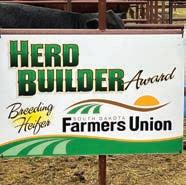
It’s difficult to share the Nightingale family’s farm story without discussing the sport of wrestling.


“We are a wrestling family. My dad wrestled in college. He also coached wrestling. At one time, all of us kids wrestled,” explained Levi Nightingale.
The youngest of the six Nightingale kids, Levi grew up wrestling – quite literally, explained his mom, Sandy.
“For us, wrestling is a family affair. I helped with the youth wrestling program. Craig coached. Even before our kids were old enough to wrestle, he coached,” said Sandy, a teacher at White Lake High School. “I’d bring the little ones along, and I’d pack snacks and some toys and they would just play in the bleachers beside me. That’s how we spent our Saturdays during wrestling season.”
It’s appropriate the sport of wrestling plays such a key role in the Nightingale family. Sandy and Craig first met because of wrestling. She was a Kimball High School cheerleader and he wrestled for White Lake. They were introduced through mutual friends but did not start dating until they were both in college.
South Dakota Farmers Union highlights the Nightingale farm family of White Lake this month. Craig & Sandy are pictured here. Turn the page to see the whole crew!
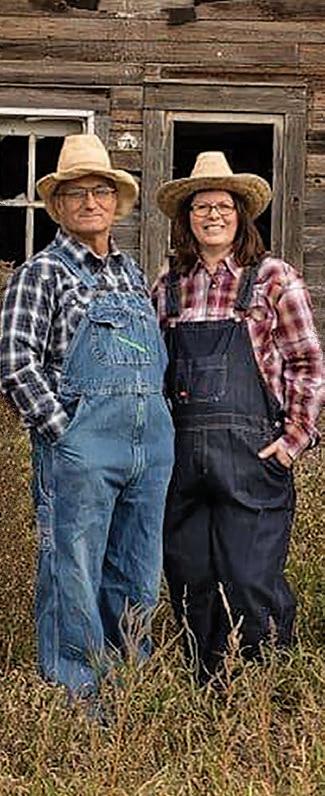
In 1978, Craig became the first wrestler from White Lake to wrestle in college. After college, he said he didn’t intend to become the local wrestling coach, but when tight budgets forced the White Lake School to cut funding to the wrestling program, he was asked to coach youth wrestling.
He served as the volunteer youth wrestling coach for 25 years. When the school re-started wrestling, they asked Craig if he would also fill the role of high school wrestling coach. All in all, there were years when Craig was coaching 40-50 hours a week during

wrestling season.
“I had so much going on, but I knew at the time if somebody didn’t get the wrestling program going, my boys would never have the chance to wrestle,” said Craig, who would get up to feed his cattle at 2 a.m. so he could wrap up chores in time to coach –the bus left for tournaments at 6 a.m.
There are many reasons Craig wanted his children and other White Lake youth to have the opportunity to wrestle.
“Wrestling teaches you so much about life. If you put the hard work in, in the practice room, you will have success wrestling,” Craig
explained. “As a coach, I always tell the wrestlers, ‘You won’t win every match, but you will learn more from your losses than your wins.’”
Wins and losses on the wrestling mat have a lot to do with who Craig is today. The tenacity he developed through wrestling, proved valuable when it came to taking over his family’s farm. When Craig was only 24, his dad, Lyle, died unexpectedly of a heart attack.
Like the role of coach, Craig had no intention of becoming a farmer. In fact, just a few years earlier, he had told his parents as much. “Because of college financial aid forms, I knew my folks were losing $10,000 to $20,000 a year. To me, personally, I saw no future in farming. I had a future as a mechanic,” Craig said. “I had my future figured out. I’d given Sandy her engagement ring two days before Dad died.”
Craig’s mom, Ruth, wanted to keep the farm and she needed her only son to help her. It was 1984 and interest rates were at 20 percent. “Here I am 24 and I have the responsibility of a quarter million dollars in debt.”
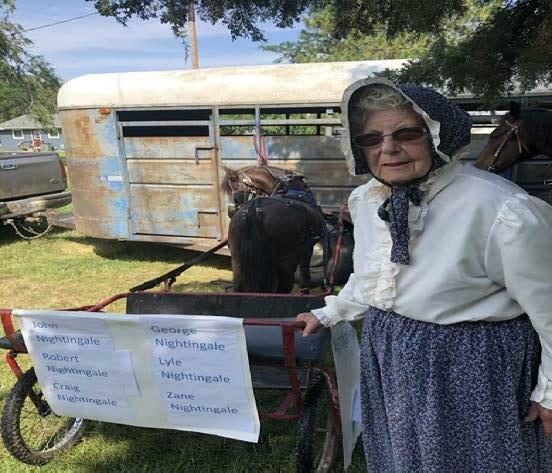

The Nightingales had been farming in Aurora County since they homesteaded in 1883 and Ruth’s family had been farming about as many generations. Craig accepted the responsibility to carry on his family’s farming tradition. From the start, he eagerly sought advice. He attended every Extension workshop he could and began to make
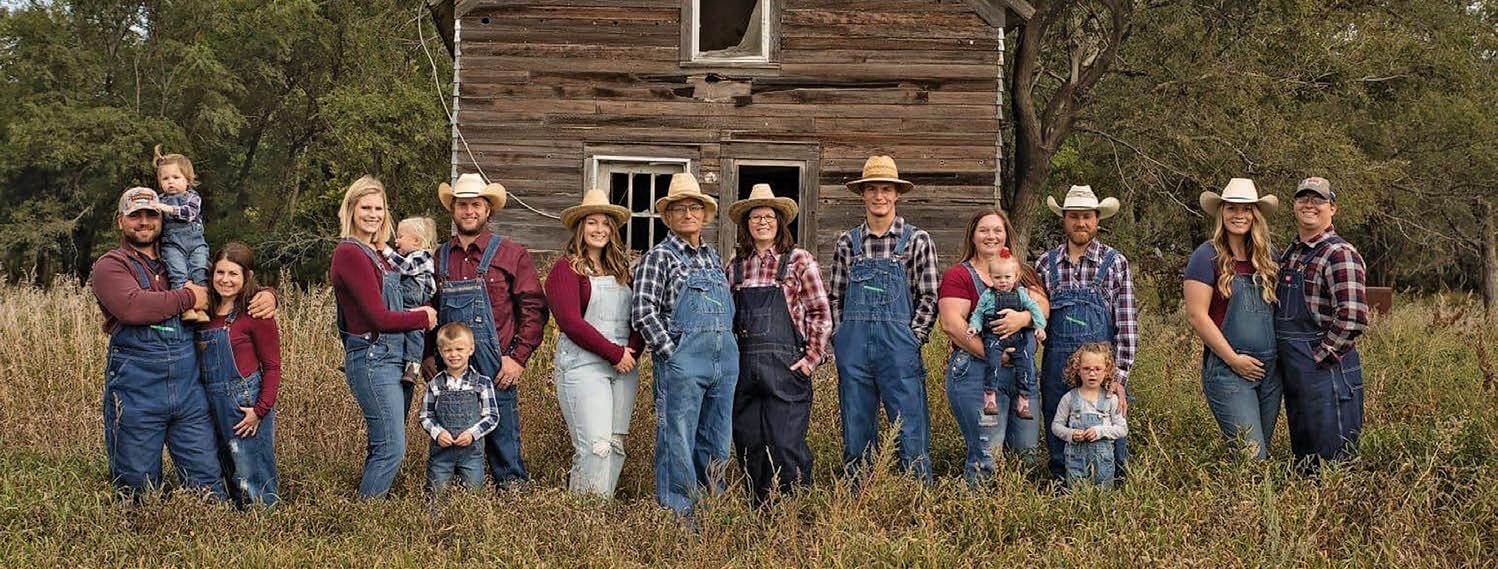
decisions based on what he learned.
He sold the farm’s dairy herd through the Whole Herd Dairy Buyout Program and invested in a farrowing barn. He let co-op agronomists test out no-till farming on his land because they covered the expenses on those acres. Craig saw the benefits and continues the management practice on all his acres today.
“Surviving was all about being as frugal as possible and living as cheaply as possible and working hard. I worked from daylight to dark,” Craig explained.
He said because his older sisters and their children chipped in, he didn’t have to hire help in the early years.
Craig also credits Sandy with her role in keeping the farm afloat. “I didn’t have takehome pay so to speak, so Sandy’s teaching salary paid the bills. I’ve got to hand it to
Sandy. She worked full time and raised our kids.”
Although her parents were dairy farmers when she was young, Sandy says when Craig’s career changed, she was a bit apprehensive. “I didn’t really know much about the farm until we got married. It was hard for me at first because Craig would be out in the field baling late at night. I remember waking up a few times and driving down the road to see
if the tractor was still moving – to make sure he was OK.”
Reflecting on where they raised their children, she said she would not do it any different.
“The mom and teacher in me learned to appreciate farm life over the years because there was always something for the kids to do and something to learn,” she said.
In addition to Levi, Craig and Sandy’s
grown children are: Ethan (Kalli), Jennalee (Beau) Olsen, Zane (Kayla), Maria (Matthew) Sandmeier and Kathryn. The couple have eight grandchildren.
She added that the farm also provided their children with the opportunity to be involved in 4-H and Farmers Union youth programing. All of their children are Torchbearers; Maria, Kathryn and Levi all
Some of the Nightingale siblings weigh in on this question.
Kathryn: Growing up on the farm impacted me in so many positive ways. It taught me a lot about responsibility and showed me how to be a hard worker. It also allowed me to work closely with family and grow stronger relationships with them.
Maria Sandmeier: Growing up on our family farm impacted me in so many ways and taught me so many values. The biggest values I learned from the farm early on are responsibility and time management.
We knew it was our responsibility to help take care of the cattle and horses, get the crops in the ground, put up the hay, help with harvest, get the cattle worked and almost all of these were on a timeline.
We all were active in 4-H showing cattle, sheep and horses so we had to be responsible feeding them, breaking them to
lead and exercising them for show.
My whole life I have been thankful I grew up on the farm because it has truly molded me into the woman I am today. I am truly thankful I get to be a farmwife to Matthew Sandmeier and help with our operation at Sandmeier Charolais. It truly is a blessing to be able raise our kids into the same lifestyle we both grew up in, teaching them these core values and responsibilities and to share our passion of the farm life through generations to come.
Jennalee Olsen: Growing up on my family’s farm had a huge impact on me as I learned the value of work and what it does for you personally and professionally. Both of my parents strived to do their best in everything they put their hands on and their hearts into.
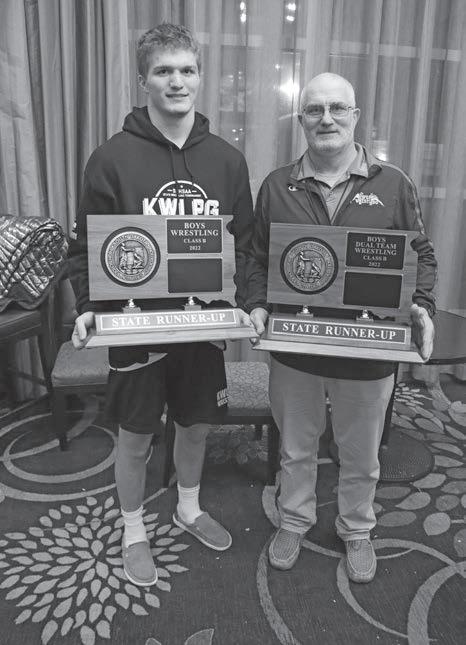
My parents worked hard to build the farm up after my grandfather’s sudden
death. This required long hours, hard work and sacrificed time away from family.
My mom not only worked as a teacher, mom and farmwife, but went on to get her master’s degree while pregnant with my younger brother and sister.
I learned several things throughout my childhood – like how to change a tire, milk a cow, drive a manual, back up a trailer, work cattle, cook meals for a big family, etc.
The one thing these skills all had in common is work ethic and family values. Presently, I live with my husband and two children (one on the way) on a farm and love it. I have two undergraduate degrees, a master’s degree in nursing and now own my own medical practice with two partners. I would not be here today without my past experiences on the farm or my parents.

“I owe it to the generations before me who kept this farm together. Right now, I’m in the combine sitting on a hilltop and I can point out quarters left and right of family farms that don’t exist anymore because the farm was given up during the ’80s.”
– Zane Nightingale
What is it about growing up on a farm?Levi Nightingale serves on the National Youth Advisory Council for Farmers Union. He is pictured here with his dad, Craig, after a wrestling tournament.
Following the Nov. 8 vote, South Dakota Farmers Union members join with the majority of South Dakotans in celebrating the passage of Amendment D. “Medicaid expansion keeps our tax dollars in South Dakota and it will help farm and ranch families access healthcare,” said Doug Sombke, President of South Dakota Farmers Union. “Our rural communities are losing necessary healthcare facilities. Medicaid expansion will help keep rural healthcare facilities open. Passing this initiated measure will save lives.”
In the long-term, Sombke said expanding Medicaid for those workers who cannot afford insurance, may actually bring down all insurance premiums. He points to North Dakota as an example. “The state to the north of us has had Medicaid expansion since it was first made available. Today, insurance premiums are lower because more people are healthier because North Dakotans have access to preventative care.”
Making healthcare available to working South Dakotans is the reason Jim Woster is happy Amendment D passed.
“I see employed people in Sioux Falls where I live, and farm families I know, who cannot afford health insurance because they simply cannot pay for it and cover all other living expenses,” explained Woster, a retired cattle buyer and agriculture columnist/ Associate Editor of Tri-State Neighbor.
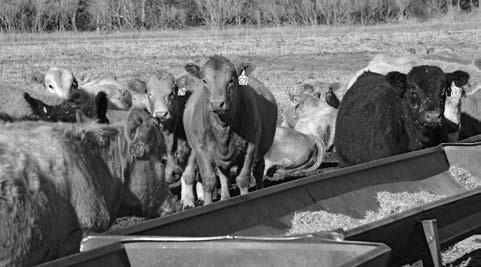
Woster echoes Sombke’s comments on Medicaid expansion’s role in providing access to non-emergency and preventative care.
“As South Dakotans if we cannot pay for
something, we don’t do it,” Woster said. “Now that young, working families will have access to health insurance, they can take their sick child in to the local clinic for antibiotics or another treatment, before they need to take their child into the emergency room with pneumonia.”
Woster added it is also nice to keep federal tax dollars South Dakotans were paying for Medicaid expansion in other states, in the state.
A united effort to support more than 42,000 working South Dakotans
South Dakota Farmers Union was among a collation of more than 40 organizations to advocate for expanding Medicaid in South Dakota.
“We worked with organizations who we do not often have much in common with. We set aside issues we do not agree on, to work together on the issue we do agree on. This was refreshing,” Sombke said.
Medicaid expansion will help an estimated 42,000 South Dakotans receive access to health insurance. ■
Continued from Page 3
served in leadership positions as members of the Junior Advisory Council, Senior Advisory Council or National Youth Advisory Council.
Working on the farm also taught the Nightingale kids responsibility and instilled in them a strong work ethic, added middle son, Zane.
“It’s a lot of hard work, but there’s always something going on, and it teaches you a lot of life lessons,” Zane said.
Before returning to farm with Craig, Zane spent a decade working full time for the Air National Guard.
“I had a good job and a nice house, but I didn’t have the satisfaction at the end of each day like I do now,” Zane said. “When we started having kids, I wanted to come back to the farm because my wife and I want
to raise our kids the way we were raised. Kayla grew up on a farm too.”
Zane works full time for his parents and he and Kayla also have a small cattle herd that they run with Craig’s cow/calf herd. They recently began leasing a small parcel of land.
When Zane talks about returning home to continue his family’s farming legacy, he refers to farming as an opportunity, not a job.
“I owe it to the generations before me who kept this farm together. Right now, I’m in the combine sitting on a hilltop and I can point out quarters left and right of family farms that don’t exist anymore because the farm was given up during the ’80s,” Zane said. ■ By Lura Roti for SDFU
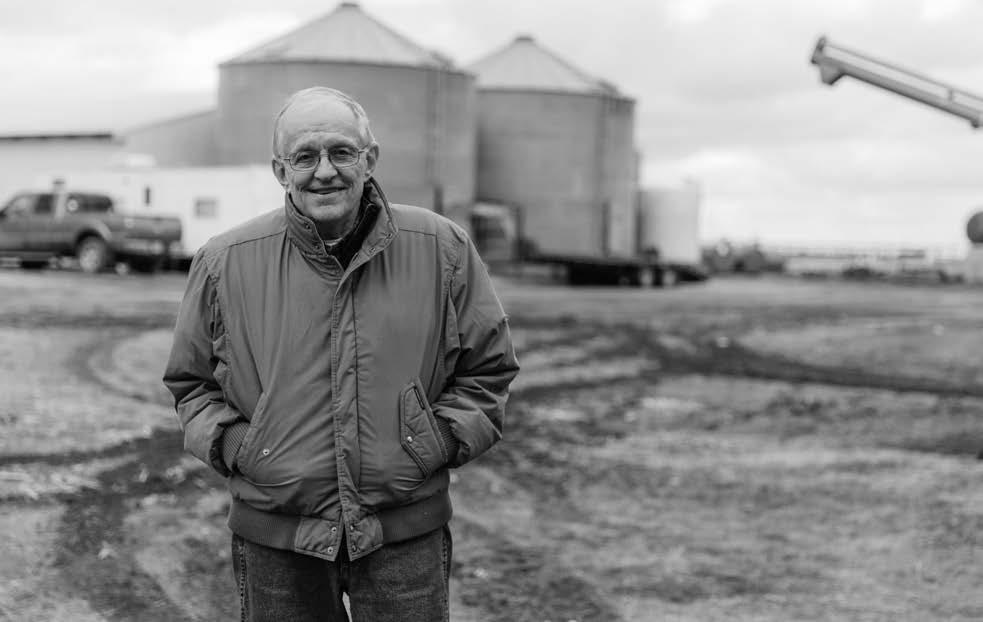
“The mom and teacher in me learned to appreciate farm life over the years because there was always something for the kids to do and something to learn.”
– Sandy Nightingale
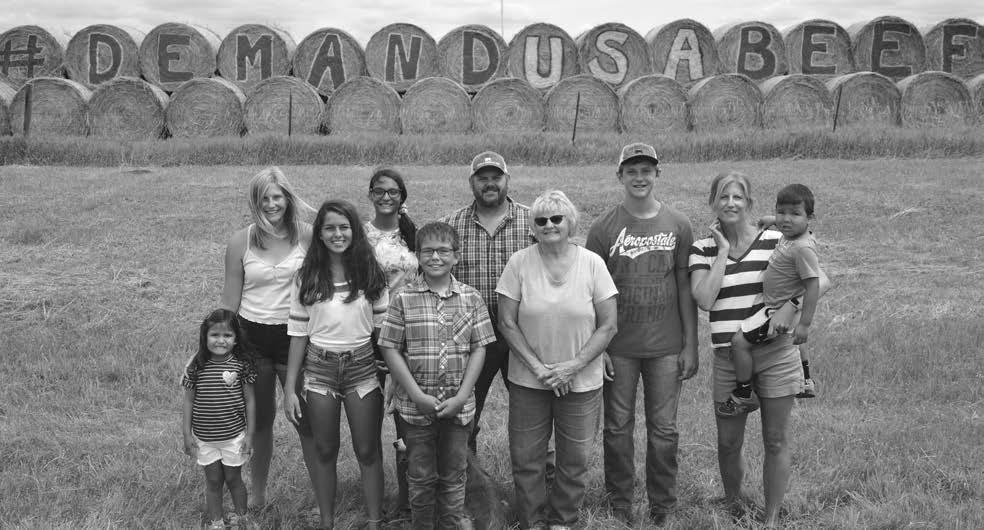
Gregory rancher Brett Kenzy is many things. He is a husband, a father, a business partner with his brother, George, in their family’s fourth-generation crop and cattle operation, a South Dakota Farmers Union member and the national president of R-CALF USA (Ranchers-Cattlemen Action Legal Fund United Stockgrowers of America).
Kenzy is also a veteran. At 17 he enlisted in the Army. He served as a mechanic in the 25th Infantry Division.
“I have no stolen valor. I was a mechanic. The way I look at it, I sat on the bench of one of the greatest teams the world has ever assembled – being the U.S. military. I was a support role for the war fighters,” Kenzy explained.
In this support role, Kenzy served as an acting Motor Sergeant. He was responsible for maintaining Humvees, 5-ton trucks, generator sets, water trailers and cargo trailers. He also managed the Prescribed Load List for deployment and driver training and licensing.
“I didn’t see any combat, but the guys in my division were the war fighters. As light infantry, they packed everything on their back and were dropped in or marched their way into battle. They do the heavy lifting,” Kenzy said. “So just being with those guys, not being one of them, but being with them and supporting them, I take a lot of pride in the support role I had.”
Kenzy initially enlisted in the Army to pay for college. “My dad knew I wanted to go to college, but with the economics of the ‘80s, he and Mom were still crawling out of the high interest rates, and he didn’t want me to burden myself with a bunch of debt.”
Reflecting on his years of service during the first Gulf War, Kenzy credits his time in the Army for doing much more than pay for college. He said it taught him a lot about people, leadership and advocacy.
“Freedom isn’t free. I know this is a cliché statement, but it’s really true,” he said. “I just think we all have a duty to pitch in and do what we can. We just can’t be quiet, but we need to stand up for what we think is right. You don’t have to be in the military to fight for your country.”
In Kenzy’s case, he makes time to stand up for the rights of cattle producers to access fair and transparent markets.
“It started with the Farmers Union Fly-In.
The next thing I know I was asked to testify with Farmers Union against fake meat when the USDA and FDA were fighting over jurisdiction over who would regulate it,” he explained.
His advocacy led him to become involved in R-CALF. In 2018, Kenzy was asked to serve on the R-CALF national leadership team and in 2022, he was nominated by the board to serve as president.
“Silence is consent. If you don’t stick up for yourself and speak your mind – you don’t have to be provocative, but it is important to firmly and respectfully stand your ground,” Kenzy said.
Before the Army, Kenzy said his life experiences and the people he knew did not extend much beyond South Dakota. He said his experience in the Army changed all that.
“Getting to meet people from different backgrounds and ethnicities and just learning that people are people and there’s good people from everywhere, every setting in this country, urban, rural, you name it – there’s good and bad everywhere,” he said. “Getting to know the people – that is what I enjoyed most.”
Because of timing – Kenzy enlisted at the start of the first Gulf War – when he reported for duty at Schofield Barracks in Hawaii, even though he had limited experience as a mechanic, he was put in charge of maintenance.
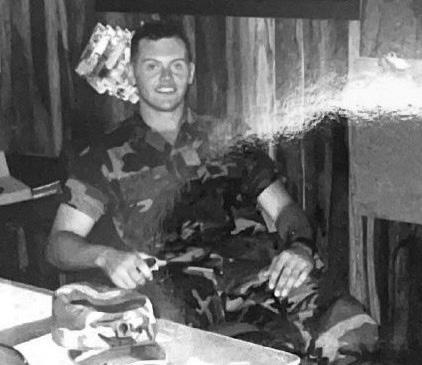
He tells the story of an awkward discussion between the Company Commander and the Executive Officer.
“I was introduced, and the Commander turned to the Executive Officer and asked, ‘What is this?’ They were supposed to get an E-6 Motor Sergeant, somebody with 12 to 15 years experience, but instead, with the Gulf War going, they ended up getting me – a brand new, fresh recruit with some mechanical skills.”
Finally, the Commander asked Kenzy about himself and learned he grew up on a farm in South Dakota.
“The Commander said, ‘well, Upper Midwestern farm boy – all the work ethic, none of the attitude. We will make it work.’ That was my welcome to being a Motor Sergeant.”
During his time in the Army, Kenzy had many opportunities to observe leaders and leadership styles. “I’ve always appreciated the leaders that were up front with you, not behind you.”
After serving for three years, at 20, Kenzy followed through with his initial plan, enrolling at South Dakota State University. He said his time in the Army had a positive impact on his career as a student.
“I would not have been a good college student right out of high school. I needed to grow up a little bit,” he said. “Also, I was a better college student because I knew how hard I worked for that tuition money...those three years in the Army put a value on that education, and shaped my perception of the importance of an individual’s rights and responsibilities as a citizen.”
■ By Lura Roti for SDFU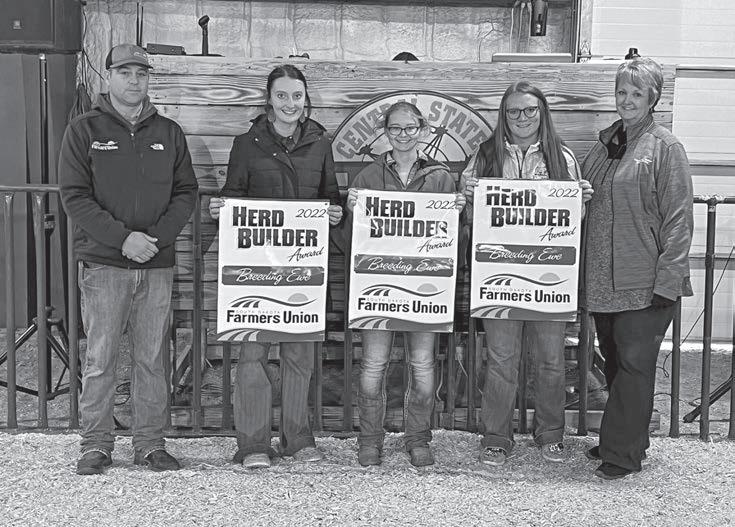
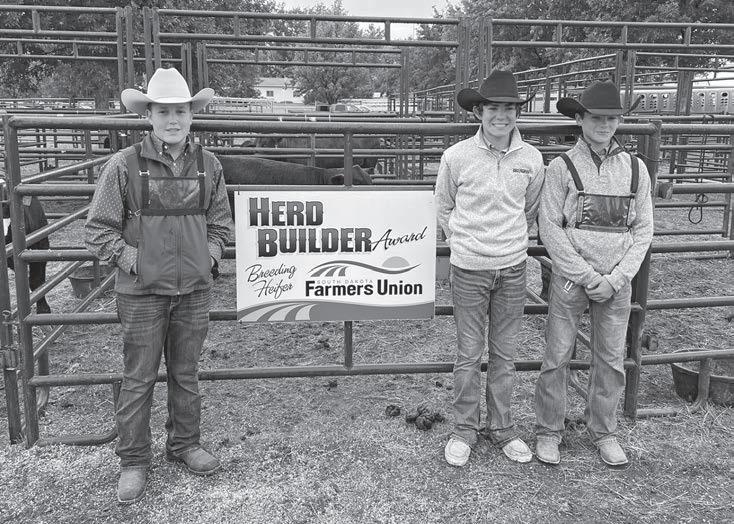
Pre-veterinary student Madison Hofer is eager to apply the skills she’s learning in classes at South Dakota State University (SDSU) to the breeding ewe she just won from South Dakota Farmers Union.
“This is the first time I’ve had the opportunity to raise my own sheep,” explained Hofer, who grew up on her family’s crop farm near Freeman. “I am eager to take care of her medical needs, but what I am most excited about is when she lambs.”
Hofer is among six youth to receive breeding stock – three ewes and three heifers – through South Dakota Farmers Union Herd Builder Scholarship program. The other youth are Jacob Jung, Mina; Rope Reis, Reliance; Austin Rose, Chamberlain; Keeleigh Reis-Elwood, Oacoma; and Carissa Scheel, Alpena.
Youth are selected based on an application process and they were awarded breeding livestock during the 2022 Western Junior Livestock Show held in Rapid City.
Helping youth get a start in the livestock industry is the reason SDFU launched the Herd Builder program in 2019, explains Executive Director Karla Hofhenke.
“It is so challenging for young people to get a start in agriculture. Farmers Union thought a good way to support the next generation was to give a quality breeding heifer and ewe to youth who plan to remain involved in South Dakota’s livestock industry,” Hofhenke said.
Purchased from reputable South Dakota cattle and sheep producers, Farmers Union staff selected the breeding stock based on their maternal genetic traits. “They are selected for breeding purposes. We anticipate the youth will also show them because they look pretty good in the show ring, but these are not club calves and lambs – they are quality breeding stock,” Hofhenke explains.
Until winning this Herd Builder award, Hofer only raised show sheep. This ewe will start Hofer’s commercial flock which she plans to continue to expand.
“I’ll use the money I earn from the offspring to help pay for vet school,” Hofer said.
Each Herd Builder recipient has a bit of a different story, but they all agree that receiving a quality breeding animal at no cost is a great way to support their long-term goal of raising livestock.
“It is a free investment to help me expand my flock of sheep,” explained Chamberlain High School senior Keeleigh Reis-Elwood.
After high school, Reis-Elwood plans to attend Mitchell Tech and pursue a degree in animal science and become a livestock nutritionist.
“I want to help livestock producers develop their feed rations,” she explained. “And I 100 percent plan to continue building my own herds.”
Elwood is already in the process of getting her ewe bred. Carissa Scheel, another Herd Builder recipient, offered to let her utilize a ram at her family’s Alpena farm.
Scheel’s family raises sheep and the third-generation farmer is excited about expanding her own breeding flock from six to seven as well as the new genetics this ewe introduces.
“She will be a good change,” Scheel said. “Raising this flock of my own has given me many skills including financial skills because I took out a loan to pay for the first six.”
Once her loan is paid off, Scheel will use the income her flock generates to help pay for college. This is also Austin Rose’s plan.
The 13-year-old already owns 10 cows, so he understands the costsavings of winning a breeding heifer. “She will make a great cow and winning her saved me a good $2,000.”
A sixth-generation Chamberlain rancher, Rose spends quite a bit of time working to help out on his family’s cow/calf and feedlot operation – he helps with feeding, cleaning feedlot pens, working cattle and does some fencing.
Of all the chores he does, Rose most enjoys helping with calving. “I get to go out in our pasture, find the good quality cattle and think
which one will be my next show cattle.”
For fun, Rose likes to show cattle.
“I like going to cattle shows because I get to be with my friends who also show cattle,” Rose said.
Although college is a few years down the road for the eighthgrader, Rose says his career plans will probably include continuing his family’s ranch.
Eighth-grader Jacob Jung also plans to continue his family’s farming tradition. “I want to stay in the cattle business. It is what my parents do, so it is what I have done my entire life and I find it interesting.”
At 14, Jung is well on his way – he has already built up his commercial cow/calf herd to 20.
Like Jung, and most of the other Herd Builder recipients, Rope Reis has also built up a small herd of cattle. Because of this, he understands the value of the heifer he won. “This is a great opportunity,” said the fourth generation Oacoma rancher.
In addition to raising cattle, Reis also trains horses. He uses most of the money he earns from these endeavors to reinvest in herd expansion, so that he can continue his family’s tradition.
“This Herd Builder program is a good idea because it helps us younger kids continue raising livestock,” Reis said.
To learn more about how South Dakota Farmers Union supports family farmers and ranchers, visit www.sdfu.org ■ By Lura Roti for SDFU
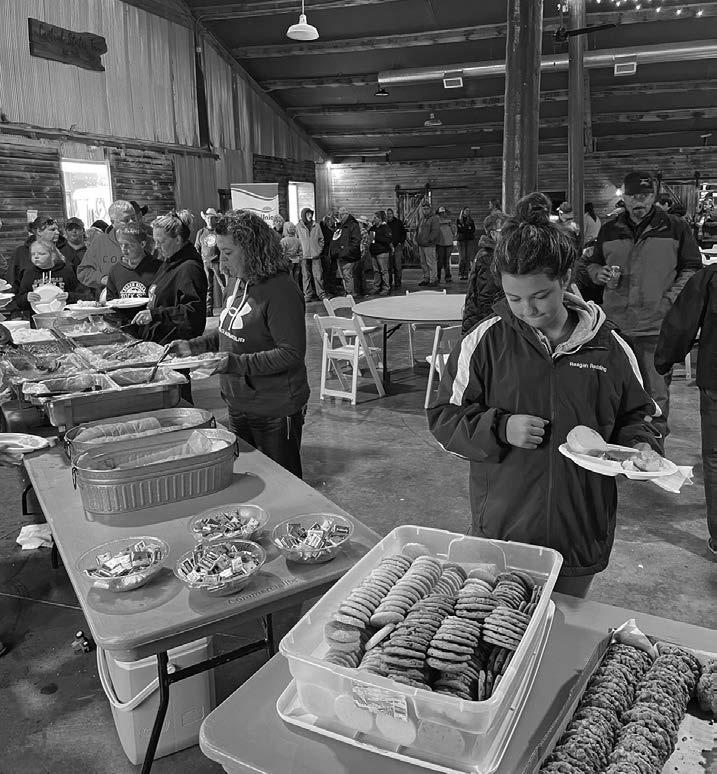

True to its grassroots philosophy, as an organization focused on family farmers and ranchers, leaders of South Dakota Farmers Union are family farmers and ranchers.
During the 2022 State Convention held Dec. 15 and 16 in Huron, members vote for members to serve as board directors in districts 1, 3, 5 and 7.
Read on to learn more about the candidates and the reasons they desire to serve South Dakota Farmers Union.
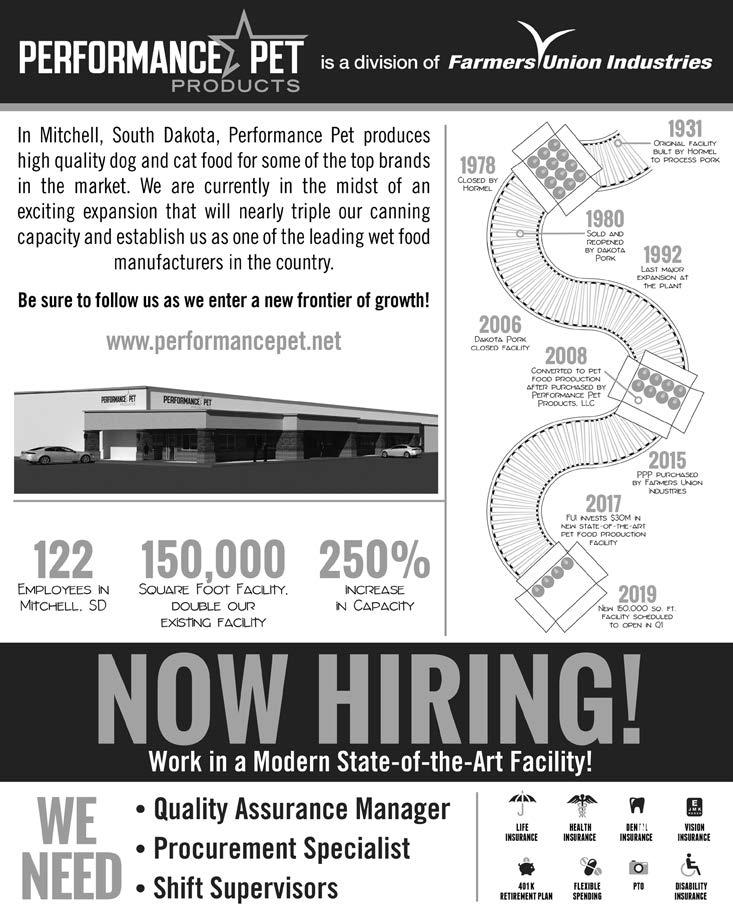
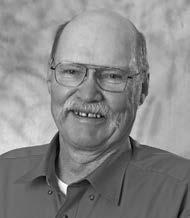
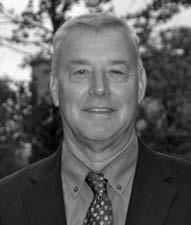
Question: Tell us about your involvement in Farmers Union?
Answer: I got involved in Farmers Union through my parents, Matthew and Maureen. Growing up, they were involved in Farmers Union. Dad served as County President and District Vice President.
I was involved in the youth programs –attending every camp, earning award trips and I received the Torchbearer award.
In 2002, I was elected to serve on the Farmers Union Industries (FUI) board of directors. Twenty years later, I continue to serve on the FUI board.
Question: What is it about this organization that you value enough to dedicate time to serving in this leadership role?
Answer: Farmers Union is always looking to the future and seeking ways to get the future involved through programming focused on youth and young producers.
Our organization is always looking for ways to make life better for future generations of family farmers and ranchers – whether this is through educational programming or lobbying efforts.
Question: Reflecting on the current times in agriculture, what do you hope to help Farmers Union accomplish during your term of service?
Answer: I will continue lobbying on behalf of our policy. Through policy we have accomplished several good things over the years. Today, because of Farmers Union policy, we have better farm and disaster programs and crop insurance. However, we need to continue fighting the battle.
I also want to help our organization look for new crops and develop more end uses for the commodities we raise so that our farmers and ranchers can get more out of the market – cut out the middleman and improve their bottom dollar.
board and our lobbyists use was developed by the members. Our state and national policy is based on what the members want.
It is impactful that the ones who are in the field, living it day-by-day are the ones making the policy.
Question: Reflecting on the current times in agriculture, what do you hope to help Farmers Union accomplish during your term of service?
Answer: With issues of Right to Repair, Fairness for Farmers and the new Farm Bill coming out, I would like to help get more members actively involved. It is through the telling of their individual stories that makes change happen.
Question: Tell us about your involvement in Farmers Union?
Answer: I became involved in Farmers Union as a child through my dad, Ellis. Ellis was heavily involved in Farmers Union and helped start the cooperative that today is CBH Cooperative. I still have the leather briefcase he was given to recognize his service to the organization.
In my 30s I became actively involved because I supported the initiatives and policy of Farmers Union, like country-oforigin labeling (COOL). I have advocated for Farmers Union policy in Pierre, during D.C. Fly-Ins and as a delegate to National Farmers Union
Question: Tell us about your
in Farmers Union?
Answer: I’m a third-generation Farmers Union member. My parents, Lloyd and Dee Battest, were actively involved, so I participated in youth programs, attending all the camps. I also served on the Junior Advisory Council and I received the Torchbearer award.
I have served as a County Education Director since 1991. I have served on state and national policy committees and I have served in leadership positions at the county and district levels. In 2021, I was honored with the Minnie Lovinger Award.
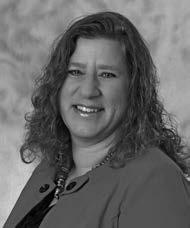
I just completed my third term on the state board of directors.
Question: What is it about this organization that you value enough to dedicate time to serving in this leadership role?
Answer: Farmers Union is member-driven. The policy that the
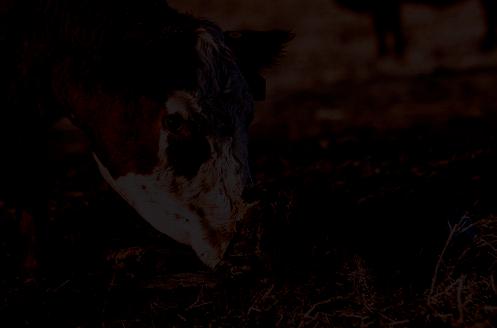
Rural photographers from across the state captured farm and ranch life in South Dakota and shared their images through the 2022 South Dakota Farmers Union Celebrating Life on the Farm and Ranch Photo Contest.
“Truly, day-to-day life on South Dakota’s farms and ranches is something worth celebrating,” said Karla Hofhenke, Executive Director of South Dakota Farmers Union. “These farms and ranches and the families who do the work are the backbone of our rural communities and lifeblood of our state’s economy.”
The contest opened April 1 and wrapped up Dec. 1 with the announcement of category winners: Best of Show, Samantha Swanson, Highmore; Livestock, Dusti Berry, Philip; Fieldwork, Cody Lafferty, Reliance; Farm/ Ranch Scenes, Candie Beck, Hecla; Working on the Farm/Ranch, Samantha Swanson, Highmore; and 4-H Members, Faith Kashas, Vermillion. All winners received a cash prize.
“We were overwhelmed by the scope and quality of photos submitted,” Hofhenke said. “We are so grateful to all who shared their creativity and talents with us.”
In conversations with the contest winners, it becomes obvious that for most, photography takes a back seat to their true passion – farming and ranching.
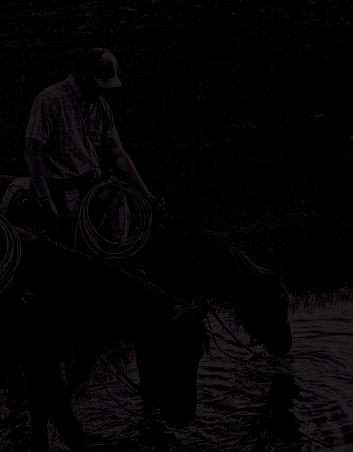
“I have known since I could walk that I was going to stay involved in agriculture,” explained Dusti Berry, a fifth-generation cattle producer.
Berry remains active in her family’s ranching operation and works for the South Dakota State University Extension Cottonwood Field Station helping manage the cattle herd.
Swanson entered quality images in three of the four contest categories, prompting judges to name her the Best of Show contest winner. She was working cattle with her sister and brother-in-law when she took the photo that won the Working on the Farm & Ranch category. It’s a photo of her brotherin-law’s horse taking a drink. “There is so much beauty out on the ranch,” Swanson said. “Ranching is in my blood. I like seeing the progress and change that happens every day when I’m out with the cattle working.”
Berry’s winning photo of a cow inspecting her newborn calf is one of a series she took during the 2022 calving season. “Calving is my absolute favorite time of year. I knew this cow was ready to calve and capturing a birth has been a photography dream of mine. So, I sat down and watched it all happen.”
Candie Beck’s winning image was also taken on her family’s farm near Hecla.
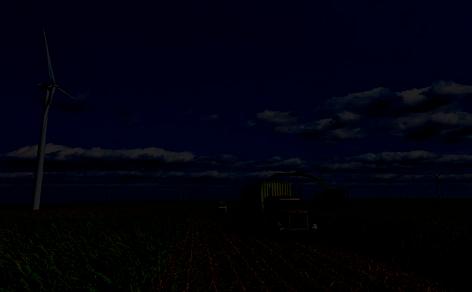

She and her husband, Randy, raise corn and soybeans on the farm where Randy grew up. Beck was driving past a row of grain bins on their farm when a clear reflection of the bins on standing water caught her eye.
“I stopped in the middle of the road and took the photo,” Beck said.

Reliance farmer, Cody Lafferty’s winning photo was also taken while he was working. Lafferty was helping a friend cut silage in a field north of Kimball when he snapped his winning photo.
“As a farmer, I am outdoors and I see a lot of pretty things throughout the day and I want to save them,” Lafferty said.
Most of the winning photos were taken with cell phone cameras. “It is so convenient, just having a camera in your back pocket,” explained Samantha Swanson. “I take photos in the middle of working all the time. I just pull my gloves off and snap a few photos.”
Swanson developed a passion for cattle as a child on her family’s cow/calf and feedlot operation near Clark. A tragic accident claimed her dad’s life when she was young and the family needed a fresh start off the farm. “My siblings and I all remain connected to agriculture,” she said.
Fifth-grader Faith Kashas is connected to her family’s farm legacy through a wooden wagon wheel that decorates her grandma’s lawn. The 4-H member’s winning photo features this wagon wheel that once belonged to her great-great-grandfather and South Dakota homesteader, Albert Bethel Cunningham.
At 10, Kashas has already won other photo contests. “Taking photos makes me feel good,” said Kashas, who plans to turn her winning photo into a gift.
To view the winning photos and others, visit www.sdfu.org ■ By Lura Roti for SDFU
Working on the Farm & RanchField Work Livestock
“My camera is covered in dust and grime because it’s always with me.”
– Cattle Producer Dusti Berry, Livestock Division Winner

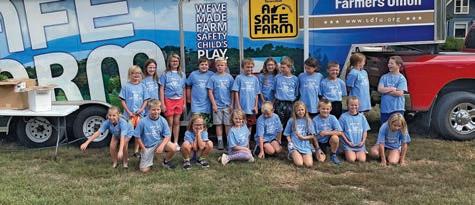
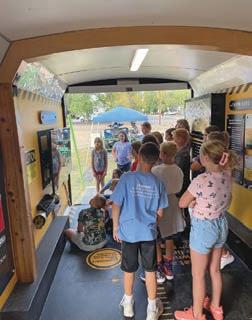
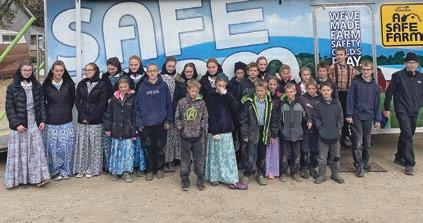

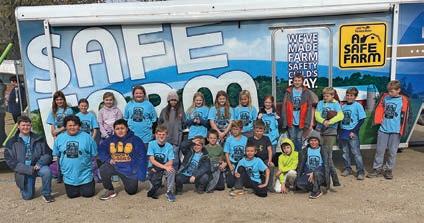
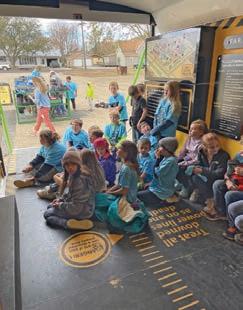

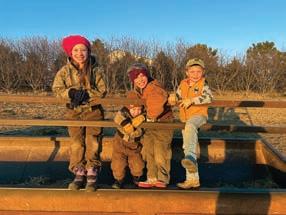
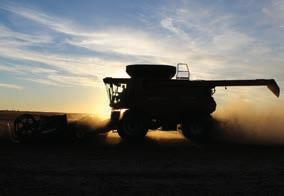

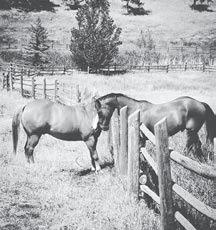
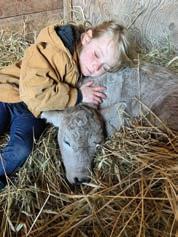
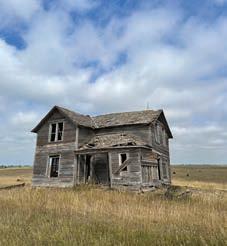

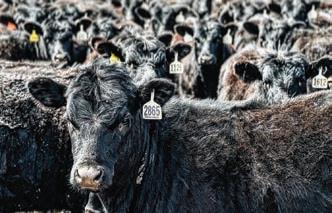
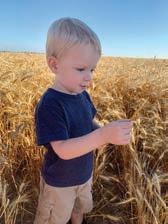
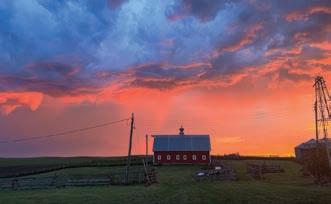


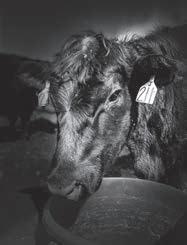
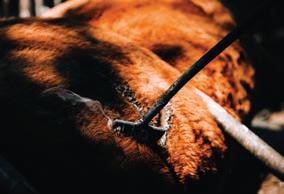
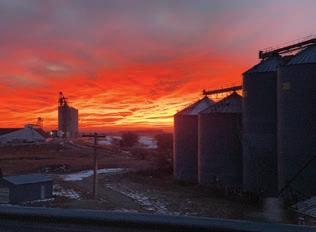
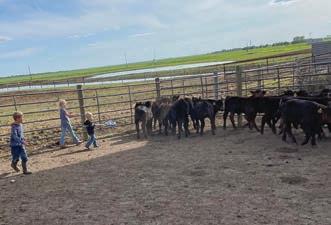
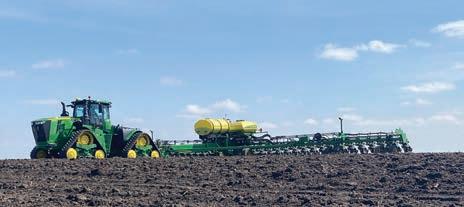
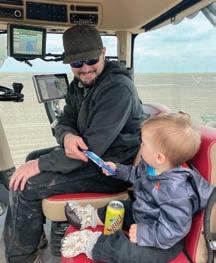
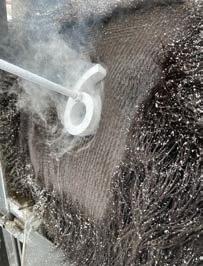
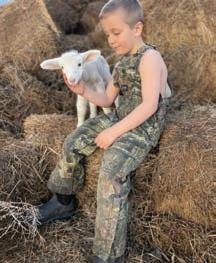

• Oren Lesmeister, SD State Legislator and Rancher


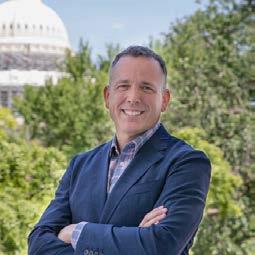
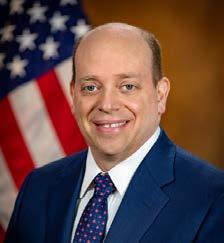
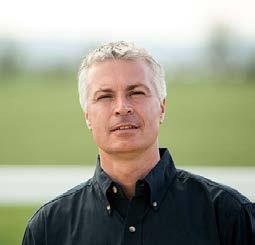
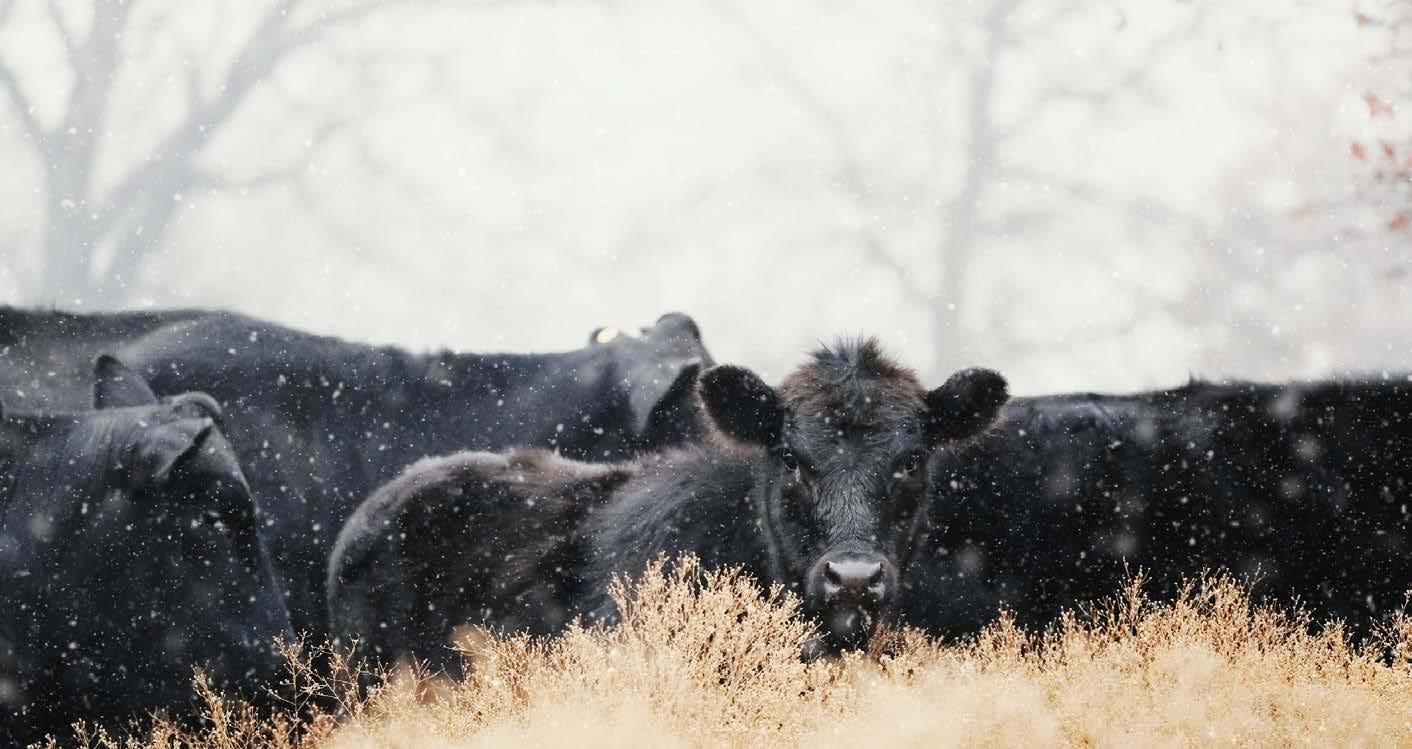


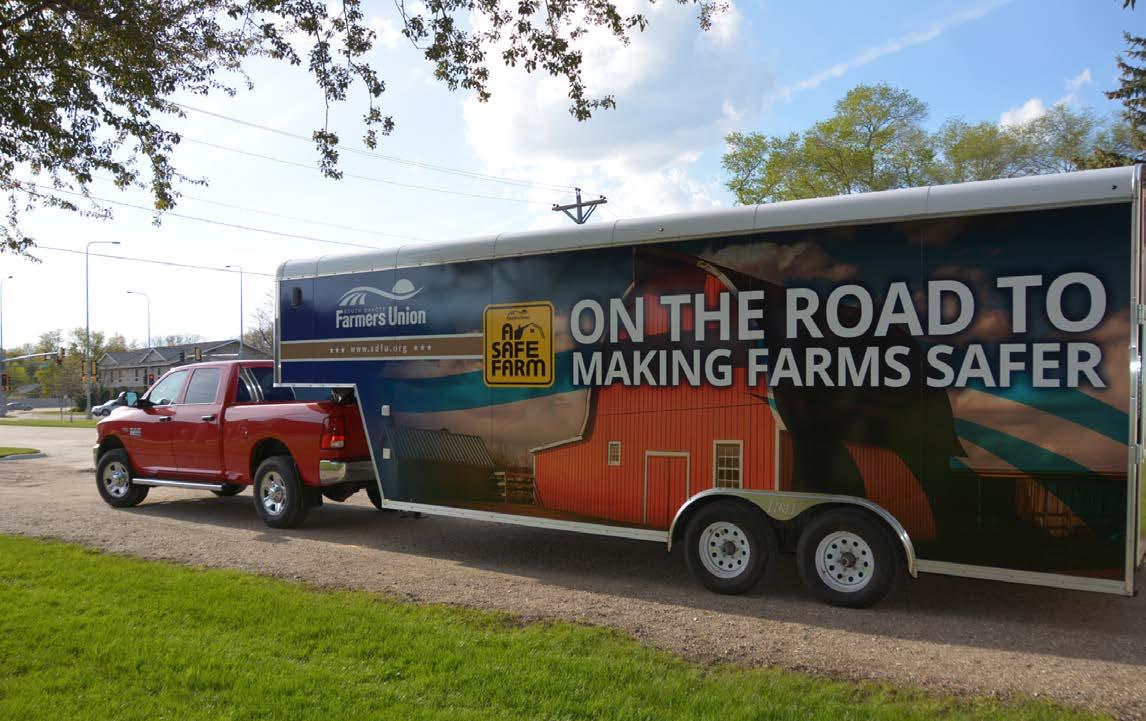
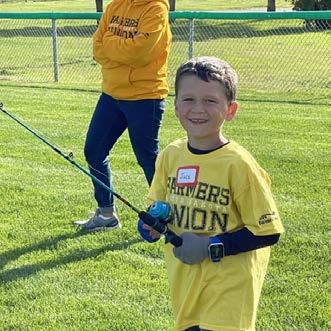
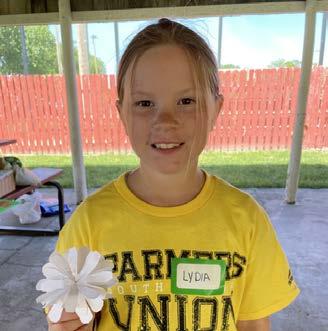
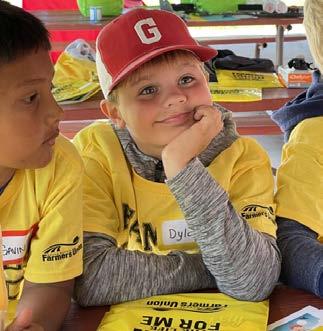
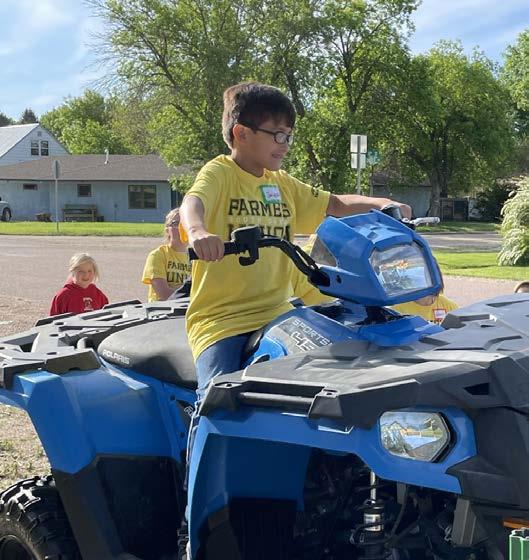
Continued from Page 1
though prices this harvest are good, due to consolidation of multi-national corporations, expenses are also high, so it’s tough to turn a profit,” Sombke said.
For nearly a century, laws have been on the books to prevent market manipulation. Farmers Union state and national policy encourages officials to enforce these laws.
SDFU invited South Dakota’s Attorney General Marty Jackley to visit about the work the state’s attorney general’s office is doing to enforce laws locally.
“I’ve joined with like-minded attorneys general to hold packers accountable by encouraging the Department of Justice to enforce laws and keep the industry competitive, fair and transparent,” Jackley said.
During convention, Jackley will sit down for a conversation with members about this topic and others relevant to South Dakota’s agricultural producers.
“This convention presents an opportunity for me to listen to what is important to our ag leaders and discuss potential solutions,” Jackley said.
In September, South Dakota cattle producers had the opportunity to meet with Department of Justice officials during the 2022 National Farmers Union D.C. Fly-In.
“They were interested in first-hand accounts of price fixing cattle producers shared and said they should not have allowed corporate consolidation like they have,” Sombke said. “We are eager to hear their next steps.”
To provide an update, SDFU invited Michael Kades, deputy assistant attorney general in the Department of Justice AntiTrust Division, to serve as one of the experts on the Ag Issues panel.
Other panelists include Scott Blublaugh, President of American Farmers & Ranchers of Oklahoma; and Oren Lesmeister, Parade rancher and District 28-A legislator.
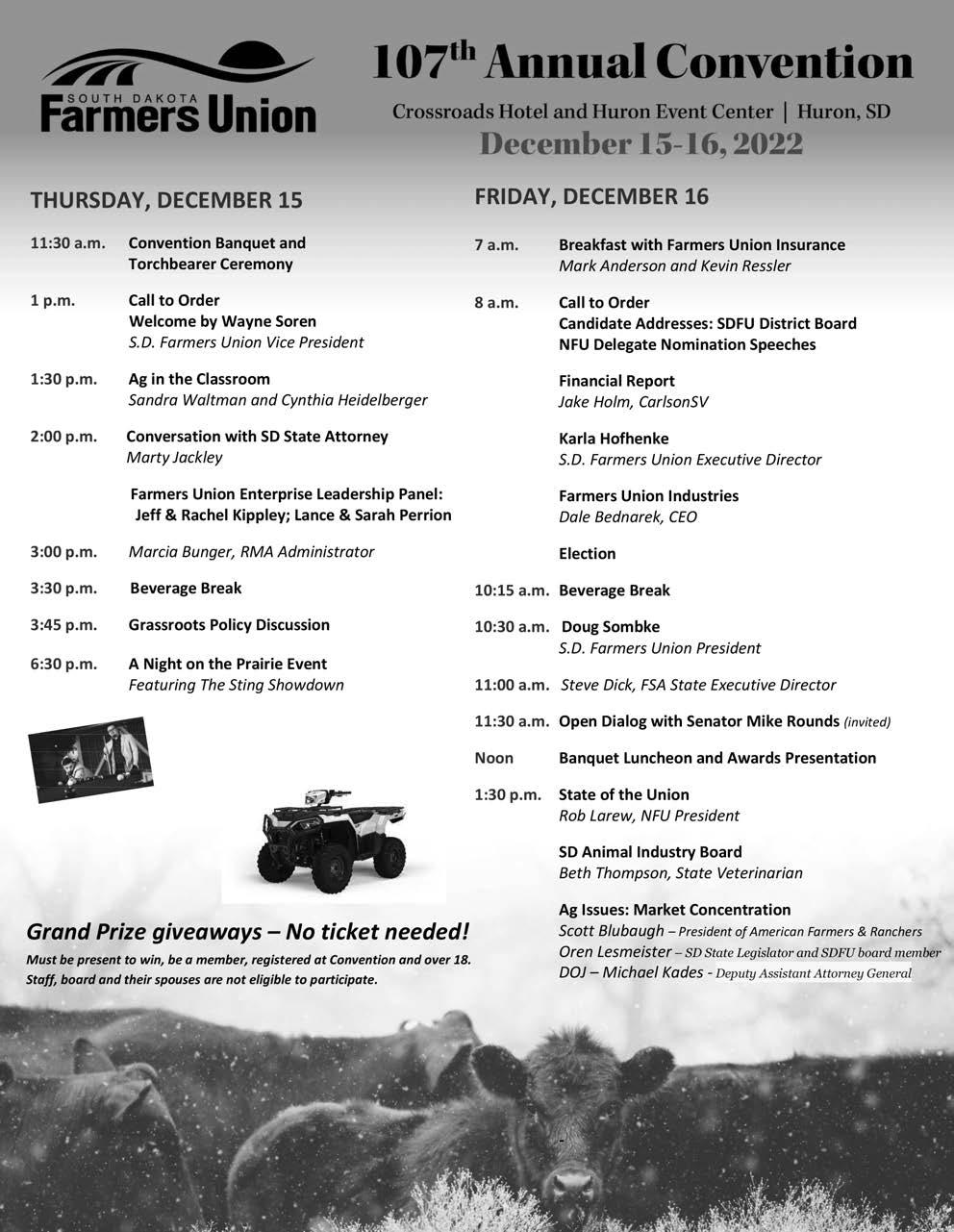
The right to repair will also be a topic of discussion during the Ag Issues panel. Right to repair focuses on establishing laws to ensure that equipment manufacturers share software necessary to repair ag machinery with equipment owners.
Grassroots Policy Established Holding packers accountable and right
to repair are examples of challenges Farmers Union members voted to address through grassroots policy. Members vote on policy and leadership during the state convention policy meeting, explains policy committee chair Hank Wonnenberg.
“Timing-wise, it’s critical to attend convention and participate in policy discussions because there is a new farm bill underway. Because of this, there are opportunities for us to put policy in place to impact what goes into this next farm bill,” explained
Wonnenberg, who farms near Dallas with his wife, Melissa, and works as a real estate appraiser at a local bank. “Right now, there are revitalized efforts for reinstating MCOOL (Mandatory Country-of-Origin Labeling) and for strengthening enforcement of antitrust legislation. The administration’s emphasis on climate and conservation has opened the door to new opportunities for renewable fuels, such as ethanol and renewable diesel,

South Dakota Farmers Union (SDFU) hosts the 2023 Young Producer Conference in Deadwood, S.D., Jan. 20 and 21. The event is offered at no cost to members and $50 to non-members.

“We understand that life is busy for family farmers and ranchers, but it is important to take time away from the farm and ranch to learn from experts, other producers and focus on each other,” explained Karla Hofhenke, Executive Director of SDFU.
Ipswich farmers, Lance and Sarah Perrion agree. “We have attended several conferences in the past and we always learn something new from the speakers and from talking with other producers,” Sarah said.
Making time to get away from the farm isn’t easy for the Perrions, because in addition to taking care of their own crops and cattle, the couple also operate several businesses that help other farmers get what needs to be done on their farms done: they grind hay and do custom forage harvesting, planting, fertilizer application, baling, manure spreading for area farmers.
And yet, they see value in setting aside the time to attend the twoday conference. “It’s always good to be able to network with other producers. They have the same issues and problems and also have different ideas and thoughts on how to address them,” Lance said.
Networking is a large benefit to attending the Young Producer Conference, said Aberdeen farmer Jeff Kippley.
“Farming is a lifetime of learning, and a big part of this event is
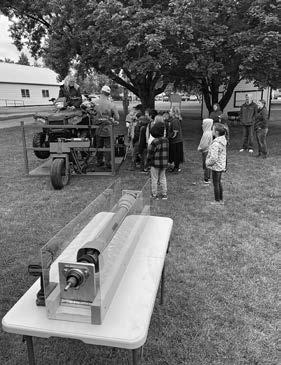
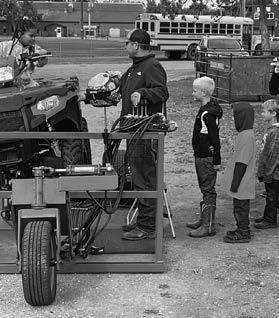
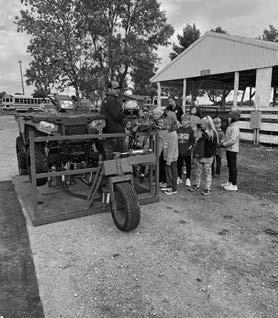
learning from other producers as well as experts in the field,” Kippley said.
Kippley, who today serves as the National Farmers Union Vice President, was first introduced to Farmers Union through a Young Producers Conference he and his wife, Rachel, attended nearly a decade ago.
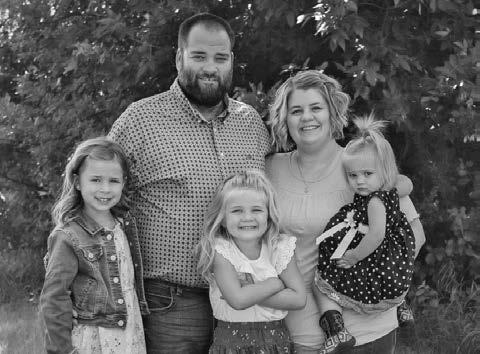
Producers learn from Expert, Expert & Expert
Perhaps the most important opportunity the Young Producer Conference provides is the chance for couples to focus on each other.
“The farmers and ranchers who show up for this conference are busy people. They are busy with work, busy with kids and rarely do they have time for each other – time to have the important and sometimes difficult conversations,” explained John Beranek, creator of Intersections Consulting.
During the Young Producers Conference, Beranek will guide couples through a communications workshop where they will have an opportunity to engage in one-on-one discussions focusing on topics important to them and the future of their family farm or ranch.
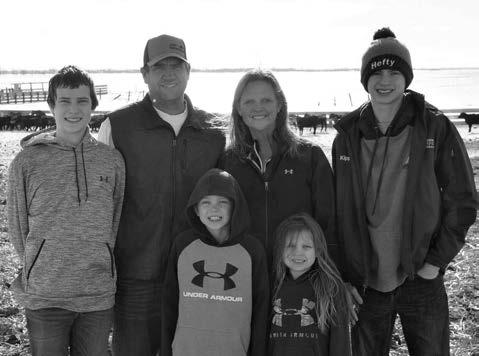
In addition to Beranek, the 2023 speaker line-up features industry experts including a panel discussion on packer monopolies and a Markets 101 presentation with Janelle Guericke, Ag Business Instructor and Broker.
To learn more, and to register, visit www.sdfu.org.■ By Lura Roti for SDFU
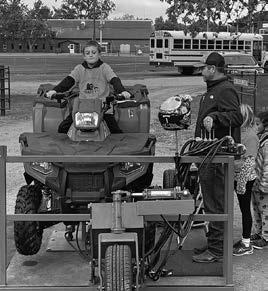
Continued from Page 13
and for possible new revenue streams from additional conservation programs and carbon credits. But, we need to advocate for what we want and need. This is our opportunity. Convention provides us with a place to talk through all of these topics, come together and do everything we can to support policy that supports farmers.”
Member-driven policy guides the
Extension Support: Farmers Union calls on state and federal government officials and lawmakers to provide enhanced funding for FSA, NRCS, Extension and other local government offices to have sufficient staffing and equipment to run an effective and efficient office to meet producers’ needs in a timely manner.
Special Order 2: The recent Supreme Court decision that replaced the Chevron
Convention.
Continued from Page 8
I have served on the state board of directors for six terms.
Question: What is it about this organization that you value enough to dedicate time to serving in this leadership role?
Answer: It comes back to the policy of Farmers Union. When there is an issue facing family ranchers and farmers, Farmers Union members develop policy to solve the issue.
It’s one thing to have policy, but Farmers Union does what needs to be done to move the policy forward so that change is made.
My wife, Tammy, and I also appreciate the camaraderie. It is nice to be around likeminded people and as a member of Farmers Union, I’m around like-minded people.
Question: Reflecting on the current times in agriculture, what do you hope to help Farmers Union accomplish during your term of service?
Answer: I would like to help increase membership in my district and throughout the state because as a grassroots organization, our policy is member-driven.
Each year I work to grow membership by visiting with farmers and ranchers during the Black Hills Stock Show. We see some potential to increase membership through outreach to members of the Rapid City Farmers Market.
organization’s lobbying efforts in Pierre and D.C.
“I take direction from the policy our members vote on,” Sombke said. “This is truly an organization where family farmers and ranchers have a voice.”
In addition to speakers, expert panelists and policy development, during convention, SDFU members will have an opportunity to reconnect, support rural youth and enjoy an evening of entertainment during the annual
Deference Doctrine—which afforded EPA with extraordinary power in its regulatory discretion—with the “Major Questions Doctrine” requiring EPA to follow the express will of Congress opens the door to enforcement of section 202L of the Clean Air Act. Congress expects EPA to replace carcinogenic benzenebased BTEX used by petroleum refiners to enhance gasoline octane ratings with environmentally superior ethanol. If EPA
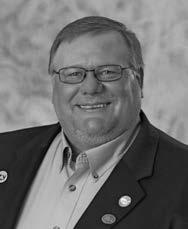
Question: Tell us about your involvement in Farmers Union?
Answer: I became involved in Farmers Union when I was elected to serve on our local Farmers Union Oil Company board of directors and I was asked to go on a D.C. Fly-In.
Getting to experience the grassroots way this organization lobbies for its policy made sense to me. It is something that impressed me and from that time forward, I was hooked.
As farmers, we need an organization that takes direction from us, lobbies for us, but also brings us in to lobby for ourselves. As farmers, we are a dwindling breed out here.
I’ve been active in Farmers Union since that Fly-In about 20 years ago. And because of Farmers Union I have had the opportunity to lobby in Pierre several times and a few more times in D.C. This last September, I brought our son, Porter, with me. He really enjoyed it and was able to share his first-hand story of what it is like to be 18 and work with me on our family farm.
Question: What is it about this organization that you value enough to dedicate time to serving in this leadership role?
Answer: It does take time, but the time is well spent because it is working on
fundraising event, Night on the Prairie. Register and you’re entered to win
All registered members, 18 and older who attend convention will be entered to win a Polaris Sportsman 570 four-wheeler, Pro 780 Traeger grill or an iPad.
To register and view a complete agenda and learn more about the 2022 South Dakota Farmers Union State Convention, visit www. sdfu.org ■
does not act immediately, direct injection engines will dramatically increase the most dangerous toxic emissions.
• RESOLVED: SDFU and its supporters shall retain qualified legal counsel to compel EPA to do its job to protect public health and the environment by establishing a national E30 “Clean Octane” standard to achieve the greatest degree of reductions achievable in harmful BTEX emissions.
topics that matter to South Dakota family farmers and ranchers, like the CO2 pipeline and the concerns many farmers have about its potential impact on property rights and resources.
So, I guess my answer comes back again to the grassroots nature of this organization. Farmers Union takes a boots-on-the-ground approach to policy. We talk directly to farmers and find ways to bring information to farmers. We come together as a group and figure out the best way to address issues facing us, then we bring these concerns to policy meetings and once we develop policy to address the concerns, that policy goes on up the food chain. It’s a bottom-up approach, not top down.
Question: Reflecting on the current times in agriculture, what do you hope to help Farmers Union accomplish during your term of service?
Answer: Membership growth is huge. And we are on the right track. Even since I joined the board, we have grown in numbers. But I want to continue to help grow our organization. Also, I think the organization has done quite a bit to get young producers involved, but I want to help in this effort as well.
We need to continue to find ways to get young people involved and work on ways to encourage young people to return to their family farms and remain involved in agriculture. ■

Nearing the end of the 117th Congress, voters flocked to the polls to cast their ballots for the midterm elections earlier this month. This included all 435 House seats, 35 Senate seats, as well as a large slate of state and local races.
Throughout the last month, with Congress largely out of town, NFU has been advancing Farmers Union’s priorities through our international partnerships and regular engagement with the Biden-Harris Administration.
farmers and ranchers and expanding access to local and regional processing, as a pillar to our Fairness for Farmers campaign. Further awards through MPPEP are expected in the coming weeks.
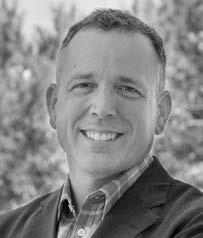
Sen. Raphael Warnock (D-GA) will head to a run-off against GOP candidate Herschel Walker on Dec. 6. Depending on how the Senate races in Arizona and Nevada end up, this run-off election could determine who controls the U.S. Senate in the 118th Congress.
In early November, USDA Secretary Tom Vilsack announced the first round of grants through three programs that will help to increase competition in livestock markets. The Biden-Harris Administration is investing $73 million in 21 grant projects as part of the Meat and Poultry Processing Expansion Program (MPPEP), which provides grants to help small and medium-sized processing plants grow their capacity.
One of the recipients is the Montana Premium Processing Cooperative, which was created in partnership with Montana Farmers Union and will provide access to a USDA-inspected meat processing facility to areas that currently do not have one.
The announcement of the grants marks a critical step in implementing the Biden-Harris Administration’s goals to promote competition in the American economy, particularly in the meat and poultry sectors, where nearly 85 percent of processing is controlled by just four large corporations. The grant investment will play a crucial role in expanding meat and poultry processing capacity, providing opportunities and fairness for small producers, and increasing competition in the meat industry. The program will also play a major role in strengthening food supply chain and lower costs for consumers.
The announcement also included an initial $75 million in Meat and Poultry Intermediary Lending Program funds, which were provided to entities in eight states, including Iowa, Minnesota, Montana, North Dakota and South Dakota. There was also another $75 million made available for the Food Supply Chain Guaranteed Loan Program.
NFU has been and remains a strong advocate for creating fairer, more competitive markets for
Leaders from around the world are meeting in Sharm el Sheikh, Egypt, from Nov. 6-18 for climate negotiations known as COP27. COP, abbreviated from “Conference of the Parties,” refers to the annual summit of the 197 countries that agreed to the United Nations Framework Convention on Climate Change (UNFCCC) in 1992.
The parties, which include the United States, ratified the treaty to address “dangerous human interference with the climate system” and stabilize levels of greenhouse gas emissions in the atmosphere. The U.N. climate body convenes these governments annually to discuss how to address climate change. This will be the 27th meeting of the parties, hence COP27.
NFU President Rob Larew attended the summit, in part due to NFU’s membership in the World Farmers’ Organisation (WFO). On Nov. 12, Larew served as a panelist for a discussion led by Vilsack on USDA’s Partnerships for Climate-Smart Commodities. Six Farmers Union states are directly involved in projects that were selected in USDA’s first round of funding for that initiative.
The discussion will be an important opportunity for NFU to highlight how Farmers Union state divisions and Farmers Union members are playing a leading role in addressing climate change. A greater emphasis on agriculture during COP27 will help to highlight the importance of establishing economically viable climate solutions for farmers.
The 2022 midterm elections are finally behind us, and the results will have major implications for agriculture policy in the coming years, including the 2023 Farm Bill.
In the Senate, Michael Bennet (D-CO) and Chuck Grassley (R-IA) – both of whom are members of the Agriculture Committee – won their races comfortably. The biggest news was John Fetterman’s victory in Pennsylvania, and he will succeed retiring Sen. Pat Toomey (R), marking the lone Senate pickup for democrats.
On the House Agriculture Committee, many members who were facing strong challenges prevailed, including Reps. Abigail Spanberger (D-VA 7), Angie Craig (D-MN 2), Sanford Bishop (D-GA 2), Sharice Davids (D-KS 3), Jahana Hayes (D-CT 5), Marcy Kaptur (D-OH 9), Don Bacon (R-NE 2) and Brad Finstad (R-MN 1). Three members lost their bids for re-election: Reps. Al Lawson (D-FL 5), Cindy Axne (D-IA 3) and Sean Patrick Maloney (D-NY 18).
As of Nov. 10, several races remain too close to call, including the Arizona and Nevada Senate and statewide races.
There were many state-level races with ties to Farmers Union as well. Democratic governors in Michigan and Wisconsin, Gretchen Whitmer and Tony Evers, secured their re-elections with larger margins than in 2018, and Kansas Gov. Laura Kelly also won re-election for a second term. In Minnesota, Democratic-Farmer-Labor (DFL) Gov. Tim Walz won re-election as did Attorney General Keith Ellison. Pennsylvania Attorney General Josh Shapiro (D) handily won his gubernatorial election against Doug Mastriano (R).
In the Southeast, Republicans did very well at the state level. Georgia Gov. Brian Kemp won re-election by roughly 7 points, and Florida Gov. Ron DeSantis defeated Charlie Crist by 19 points. Republican Sen. Marco Rubio won re-election against former Congresswoman Val Demmings.
All told, the widely expected “red wave” did not materialize in the way many pollsters and pundits predicted. Given that several House and Senate races remain to be called, a narrow GOP House majority appears to be the most likely outcome.
With razor thin margins in both chambers, compromise will likely be key to a path forward for any legislation. This could lead to a strongly bipartisan effort to pass the 2023 Farm Bill. NFU will be closely monitoring the final results from the election, and we’ll certainly have more to report about the 2023 Farm Bill process in the weeks and months ahead. ■ Current as of Nov. 15, 2022
Each morning I read several national newspapers online. And nearly every morning I am grateful that I serve members and an organization that focuses on policy – not politics.
With a policy focus we are able to collaborate. And by concentrating on a particular issue that we agree impacts family farmers and ranchers, we can come together with others to make positive change.
The results of cooperation were evident Nov. 8, when two issues SDFU members supported through our policy became reality: Medicaid expansion and the fact that Wholestone Farms hog processing plant has permission to begin construction in Sioux Falls.
Sticking to policy and a cooperative spirit is also the reason the Department of Justice (DOJ) is listening to Farmers Union. Holding packers accountable to provide a fair market for livestock producers has been a focus of Farmers Union policy for decades. And over the decades we have built up a credible reputation for policy-focused lobbying. With the help of consumers who share our concern because of the packer impact on the supply chain, the issue is receiving more attention.
During the Fly-In meeting with Sen. Mike Rounds, he mentioned the possibility of COOL making a comeback in the upcoming Farm Bill. And a deputy with the DOJ anti-trust division will participate in a panel discussion during our 2022 State Convention.
The 2022 State Convention is also where you have the opportunity to set our organization’s policy.
I urge all members to make time for State Convention policy. As a grassroots organization, the policy voted on by members during State Convention guides SDFU leadership and lobbyists. It is the policy we take to the National Convention. State Convention is also where delegates are elected to serve at the National Farmers Union Convention. I encourage members to consider running to serve. As a delegate, you will take SDFU policy to the National Farmers Union Convention policy meeting. State Convention also provides a wonderful time to reconnect with old friends and make a few new ones. I look forward to seeing you at State Convention!
South Dakota Union Farmer, ISSN 0745-8797, publishes 9 times per calendar year, with issues printed in January/February, March/April, May/June, July, August, September, October, November and December. Periodical postage paid at Madison, S.D.
Karla Hofhenke, Publisher Lura Roti, Editor
Wendy Sweeter, Copy Editor Diane Martinson, Layout & Design
All information for publication must be submitted by the 15th of the month. You may submit items to address below or email items to: sdfu@sdfu.org
POSTMASTER: Address changes to: SDFU, PO Box 1388, Huron, S.D. 57350-1388
Contact SDFU • 605.352.6761
1410 Dakota Avenue South, PO Box 1388, Huron, SD 57350 www.sdfu.org sdfu@sdfu.org
Karla Hofhenke............ext. 114
Executive Director Huron
Rocky Forman. ext. 117 Member Services Coordinator Huron
Kelli Peterson ..............ext. 116 Administrative Assistant Huron
Doug Bruckner ext. 118 Controller Wessington Springs
Luke Reindl.................. ext. 122 Comm. & Policy Specialist Wessington Springs
Rep. Dusty Johnson 202-225-2801 / 855-225-2801 reid.rasmussen@mail.house.gov

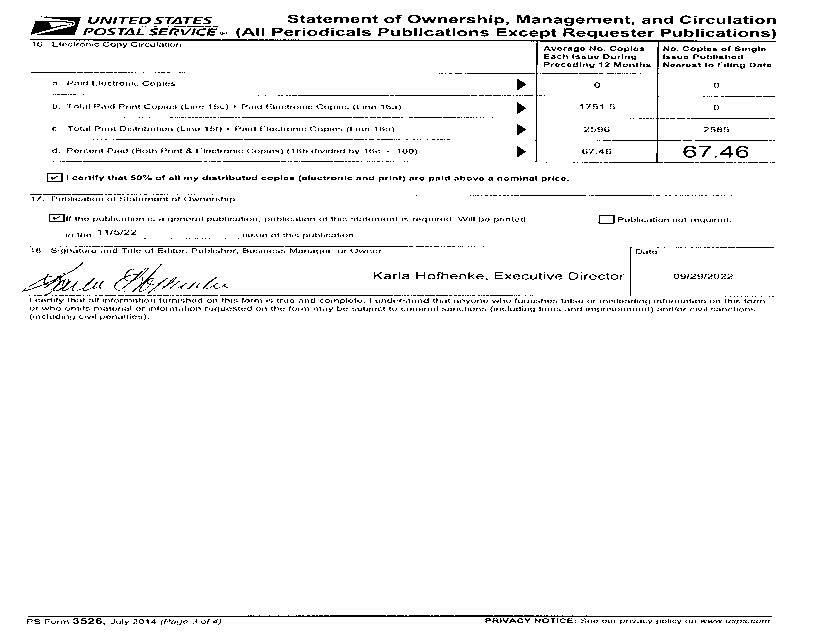
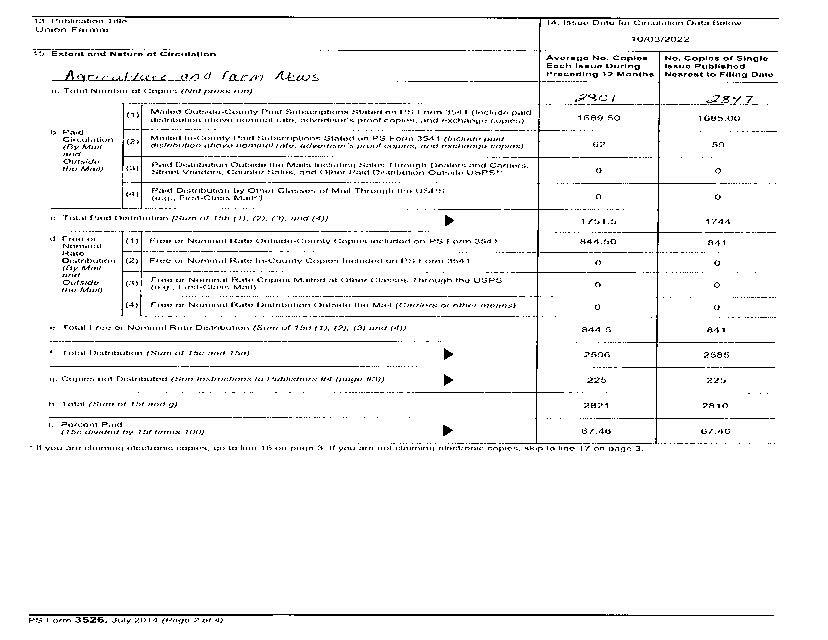
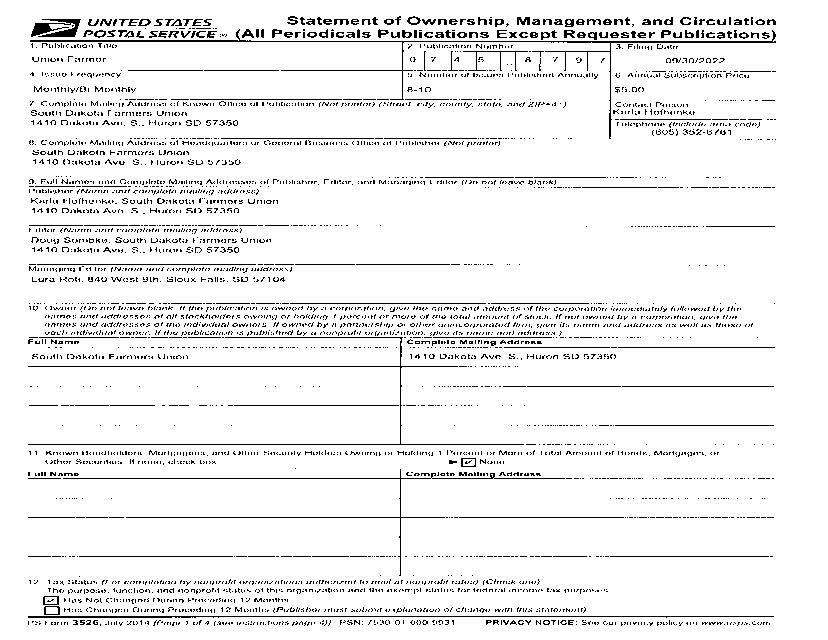

Sen. Mike Rounds Michael Brooks – 202-570-1558 Michael_Brooks@Rounds.Senate.gov
Sen. John Thune 202-224-2321 / 866-850-3855 ryan_donnelly@thune.senate.gov
Wayne Soren Vice President
Lake Preston
Mike Miller ............... District I
Freeman
Scott Kolousek District II Wessington Springs
Gail Temple District III Clark
David Reis District IV Oacoma
Dallis Basel ..............District V Union Center
Oren Lesmeister District VI Parade
Chad Johnson District VII Groton
Contact NFU National Farmers Union 20 F Street NW Suite 300 Washington, DC 20001
Rob Larew, President ~ Jeff Kippley, Vice President
Darin Von Ruden, Secretary ~ Doug Sombke, Treasurer 202.554.1600 www.nfu.org
The LRP policy is designed to protect cattle producers from declining livestock prices. It provides coverage for feeder cattle, fed cattle and swine. You may choose from a variety of coverage levels (70-100 percent) as well as insurance periods (from 13 to 52 weeks) that match the time your livestock would normally be marketed.
Here is a brief list of some of the changes and improvements made to the program.
• Increase head limits:
– Fed cattle: 12,000 head per endorsement and 25,000 head per crop year.
– Feeder cattle: 12,000 head per endorsement and 25,000 head per crop year.
– Swine: 70,000 head per endorsement and 750,000 head per crop year.
• An insured can now have both an LRP and LGM policy with stipulations such as not having the same insured livestock insured under multiple policies.
• M odify the premium offset language to allow an insured the choice to receive indemnities without a reduction to offset premium on any endorsements that have not yet ended.
• Extend the termination date from June 30 to Aug. 31.
• Require proof of ownership before indemnity is issued.
• Clarify that livestock must be marketable by the end of the policy.
• Require insurance companies to pay claims within 30 days. Previously, insurance companies had 60 days to pay indemnities following the receipt of the claim form.
• Cancellation during a cr op year to submit an application to another LRP policy with a different insurance provider within the same crop year is no longer allowed.

The LGM plan is designed to provide protection to the profitability or gross margin of an operation from input costs increasing or market prices lowering. It is available for cattle, dairy and swine.
Here is a brief summary of some of the changes and improvements recently made to the program.
• Expand LGM cattle, dairy and swine coverage availability to all 50 states.
• An insured can now have both an LRP and LGM policy with stipulations such as not having the same insured livestock insured under multiple policies.
• M odify the premium offset so the insured has a choice to receive indemnities without a reduction to offset premium on any endorsements that have not ended.
The Pasture, Rangeland, Forage (PRF) Pilot Insurance Program is designed to provide insurance coverage on your pasture, rangeland or forage acres grown for the intended use of hay or grazing.
It is an area-based program that makes claim payments when that area receives less than average rainfall. This gives you the ability to buy insurance protection for losses which can result in more expense for feed, rent, etc. or maybe even help prevent possible herd reduction sales and other undesirable outcomes. If there is a lack of normal rainfall, PRF claim payments kick in to help those who may
want or need to buy supplemental hay or feed.
And while this policy is growing in popularity, it’s still important to look at the premium costs as well as the payment limits to see not only what the potential is for you, and also that this is the right coverage versus other options such as forage production.
Here is why I think this policy has gained interest:
• Premium payments are subsidized to help keep it affordable and they don’t have to be paid until several months later. You buy the product by Dec. 1 and do not get billed until September next year.
• It’s simple and efficient. PRF insurance policies include protection for haying and grazing against lack of precipitation. That’s it. The policy really takes care of itself. There isn’t any production records keeping or reporting, and the technology does the work, so no one has to file a claim as payments are automatically paid.
• There are several different coverage options you can tailor for you risks. You can buy several different levels of coverage to reach your needed limits. You can also pick a combination of different two-month intervals and go with as little as 2 or 5. You have those flexibilities.
• Until now there never have been a lot of options to insure grazing acres. It’s relieving to now have a risk management tool for ranchers’ sustainability.
■ By Dennie Stratton, Sales Director Crop Insurance Distribution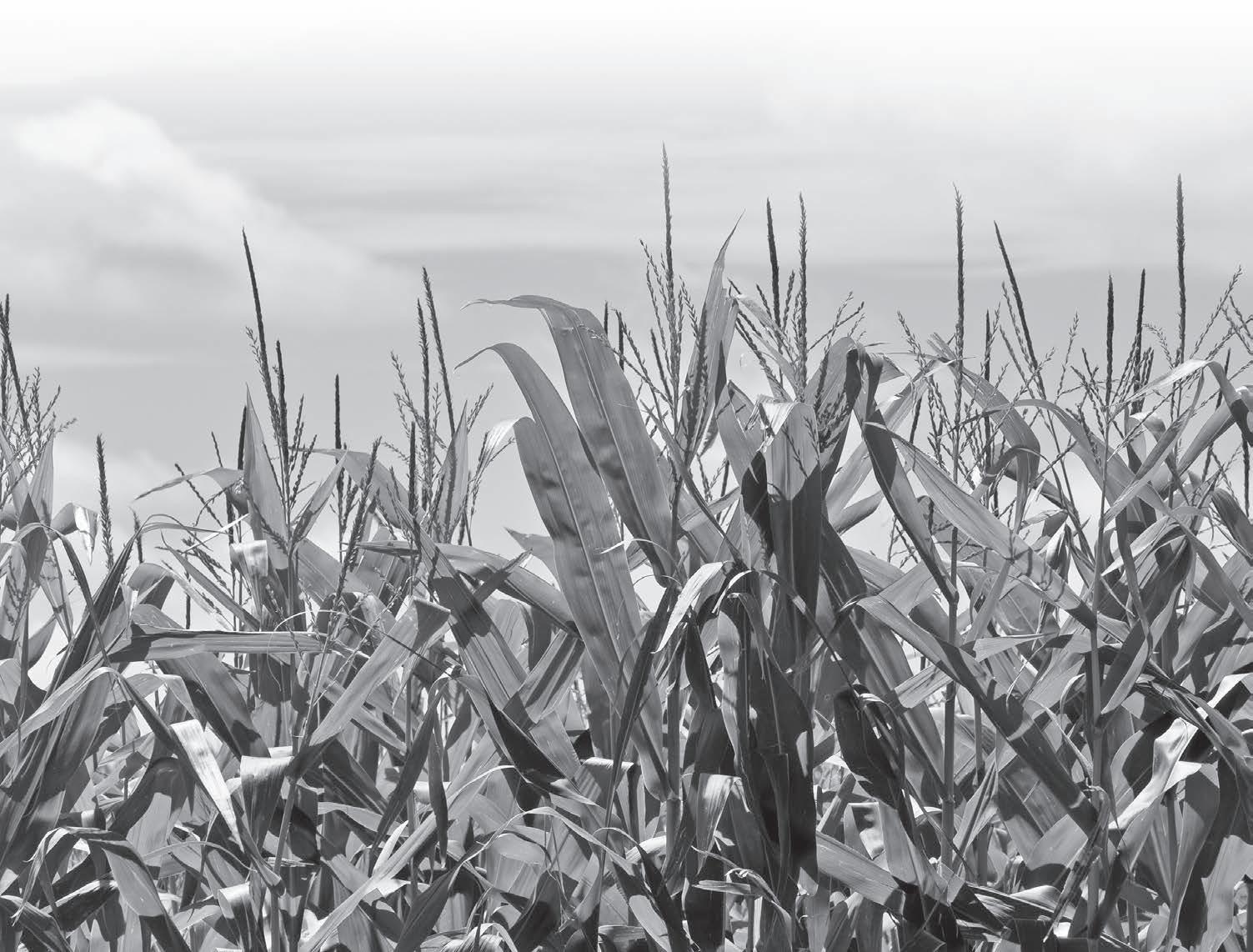
Doug – Thank you so much for your guidance and leadership at the legislative fly-in! I learned so much about advocacy from you and I am thankful SDFU is blessed with the type of leadership you display!
Wishing you all the best, Kayle Lauck ***
Bryan and I would like to “thank you” for giving us the opportunity to experience how hard Farmers Union works to advocate for farmers and ranchers like us. We thoroughly enjoyed being in Washington, D.C., getting to know the members better and getting that firsthand experience. What you all do does make a difference in agriculture, not just for us but for the next generation. We truly appreciate your efforts!!
Thanks again, Bryan & Leah Spiel ***
Thank you for presenting at the 2022 SOFY Camp in Bridgewater. The kids had a lot of fun and enjoyed their time. Finally, thank you for teaching the kids how to be safer around farm animals and equipment.
Bridgewater-Emery FFA
Show your Farmers Union spirit with a special Farmers Union sign. Available for a limited time, the sign makes a fun addition to the farm driveway, the side of a barn or even a statement piece in the house.
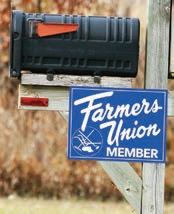
The cost per sign is $10 or free with a five-year or greater membership to Farmers Union. To get yours today, contact Membership Specialist Kelli Peterson at 605-352-6761 ext 116 or at kpeterson@sdfu.org.
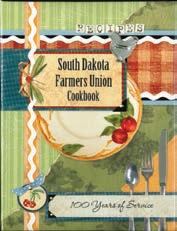
Karla – It was so nice to meet you in person! Thanks for stopping by our office – come anytime! We are so incredibly grateful to you and the Farmers Union board for making this donation! We can’t thank you enough for your friendship, generosity and partnership in making life-changing wishes come true!
My best, Amy – Make-A-Wish ***
Thank you for sponsoring the herd builder heifer. This is by far the coolest award I have ever won. I got the first pick in heifers. I was so excited when they told me I won a heifer.
Rope Reis ***
Thank you for sponsoring the travel scholarship to National FFA Convention! We appreciate you! Your contribution has greatly helped us in our travel plans! We hope to represent South Dakota well!
Belle Fourche FFA Parli Team ***
Thank you so much for sponsoring the Extemporaneous Speaking LDE travel scholarship to attend the National FFA Convention in Indianapolis a few weeks ago. I enjoyed the
Cookbooks are $10 plus tax and shipping.
Contact Kelli Peterson 605-352-6761, ext 116, to place your order today!
opportunity to compete at Nationals and represent not only our school and community, but our state in competition. I received a bronze award and drew the topic “Are land prices and high input costs barriers of entry for young people entering production agriculture?”. This was a highlight of my FFA and high school career and I appreciate S.D. Farmers Union supporting the S.D. FFA Foundation and members like me by sponsoring my travel scholarship.
Ellie
Olsen, Deubrook Area Schools Senior***
Thank you so much for sponsoring the Herd Builder Award! This year I was lucky enough to be awarded one of the three ewes! I have already started breeding her. I can’t wait to watch my herd grow!
Thank you so much.
Keeleigh Reis-Elwood
(SUBJECT TO CHANGE)
December 2022
1 Charles Mix County Annual Meeting, Geddes
1-2 CHS Annual Meeting, Minneapolis, Minn. 15-16 State Convention, Huron 23-26 Office closed – Christmas January 2023
3 District 1 Quarterly Meeting via Zoom 16 Office closed – Martin Luther King, Jr. Day 20-21 Tri-State Producer’s Conference 27-Feb. 5 Black Hills Stock Show, Rapid City February
6 Ag Fest, Pierre 10 Safety Trailer, Davison County Fairgrounds
20 Office closed – President’s Day
28 Legislative Day, Pierre March
5-7 NFU Convention, San Francisco 28-29 FUI Board Meeting, Redwood Falls
BROOKINGS
BROOKINGS
BUFFALO
CLARK
DOLAND
FAULKTON
HURON Blaine Anderson 352-2130
IRENE Brendon Hansen 263-2121
IRENE Brian Hansen 263-3342
KADOKA Donna Enders 837-2144
LEMMON Chris Goldsmith 374-3462
MARION Kevin Albrecht 941-0650

LEMMON
MENNO Brendon Hansen 387-5555
MITCHELL David Schelske 660-2743
MARION
MITCHELL Zach Horstman 840-0440
MITCHELL Blake Guymon 996-7132
PIEDMONT Ce Faulkner 737-0463
PIERRE Andrew Mefferd 224-4123
PIEDMONT
RAPID CITY Kasey Keller 343-4213
RAPID
RAPID CITY Dan Lewis 342-3585
RAPID CITY Jake Lewis 342-3585
SIOUX
SIOUX FALLS Jeff Nord 338-5302
SIOUX
SIOUX FALLS Stacy Mongar 338-5302
SISSETON Erica Steiner .............698-7316
SISSETON Erica Steiner 698-7316
SPEARFISH Scott Sabers .............642-8870
SPEARFISH Scott Sabers 642-8870
STURGIS Scott Sabers .............347-4507
STURGIS Scott Sabers 347-4507
WATERTOWN Todd Nichols ............886-9683
WATERTOWN Todd Nichols 886-9683
WEBSTER Debbie Baumgarn ....345-2640
WEBSTER Debbie Baumgarn 345-2640
WEBSTER Larry Baumgarn........345-2640
WEBSTER Larry Baumgarn. 345-2640
WINNER Jeremy Clay ..............842-1556
WINNER Jeremy Clay 842-1556
PLATTE Craig Guymon 996-7132
PIERRE
YANKTON James Murphy 664-2121
YANKTON James Murphy..........664-2121